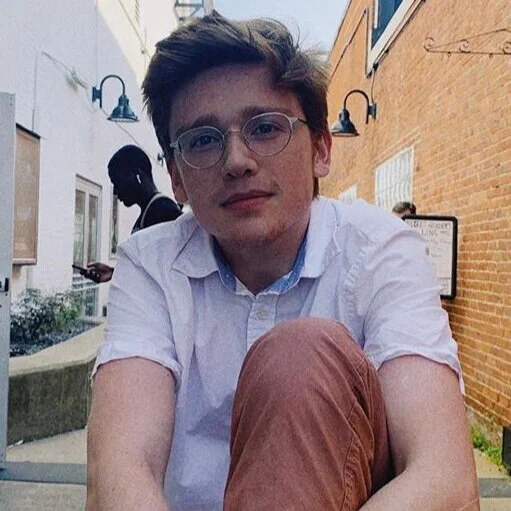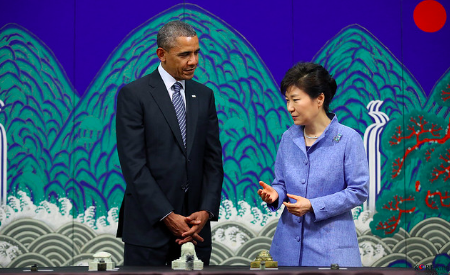Last October in the US, a media firestorm erupted in response to many prominent actresses coming forward to accuse producer Harvey Weinstein of sexual assault. In the days after the story broke, women across the world were invited to share their stories of sexual assault and harassment using the hashtag #MeToo. In the safety of numbers, inumerable women came forward to share their experiences, exposing their bosses, CEO’s, and elite, powerful men to the scrutiny of society. But this is all old news. While the movement has had incredible success in America, it has had a different reception in other cultural climates, namely, France.
The French have historically taken a different perspective on sexual allegations than Americans. Take, for instance, the shock and horror Americans expressed when news of President Clinton’s affair with Monica Lewinsky broke, versus the “c’est la vie” air expressed by the French in response to President Mitterand's affair with actress Julie Gayet.
In early January, French actress Catherine Deneuve joined 99 other well-known French women in an open letter to the #MeToo movement. The letter posed a critique of #MeToo, comparing it to a Stalinist “thought police,” and arguing that “what began as freeing women up to speak has today turned into the opposite – we intimidate people into speaking ‘correctly’, shut down those who don’t fall into line, and those women who refused to bend [to the new realities] are regarded as complicit and traitors.” To the crafters of the letter, #MeToo represents a “hatred of men and sexuality,” an American brand of anti-feminine, anti-male feminism. The letter also included an unfortunate phrase regarding men’s right to “pester women.” To some in France, the #MeToo movement seems like little more than a wave of American puritanism, an encore to the McCarthy era witch hunts.
Not surprisingly, the letter exploded on social media where it was condemned as an example of internalized misogyny or, more extremely, rape-apology. Devenue and other signers were largely viewed as out of touch with reality, as glamorous older women whose privilege allows them to forget the fraught workplaces of millenials, or the students who walk home alone at night.
While the writer’s statements do pose a kind of reality check to the #MeToo movement, their statements on men’s so-called right to “pester women” and emphasis on men's role as the seducer, emphasize their experience of an older culture in which male subjectivity was a natural right. While the writers paint a rosy picture of sexual freedom apart from what they see as an American-inspired wave of “puritanism,” the emphasis on female objectivity and passivity, of being pursued, has no point of reference in the worlds of ordinary French women. Sure, women enjoy to flirt and be flirted with (as do men), but to claim a grey line between this and assault smacks of the predatory sexism that sparked the #MeToo movement in the first place. “If that’s your fetish, if that turns you on, there’s a problem," Rania Sendid, a medical student at Sorbonne University told NBC. "She doesn’t speak for me.”
Nevertheless, according to feminist and historian Michelle Perrot, the writers, “are triumphant free women who show a certain lack of solidarity with the #MeToo victims … But they say what they think, and many people share their point of view. The debate is real and must be recognised.” Despite being hailed as outdated or out of touch, the Devenue letter was signed by many millenials. Thus, the divide seems as much ideological as generational.
While the letter was perhaps poorly expressed, it did draw on the fear of many French women that #MeToo represents a brand of moralist, antisexual thinking that is more oppressive than freeing. In some eyes, the movement seems to have morphed from assault victims seeking justice into a culture of revisionism. In an interview with the Atlantic, 55 year old event organizer Jean-Julien Pascalet said that, “we suffered for a long time from religion, which imposed a moral order — saying, 'that’s good, that’s bad.' If we go back to that … it would be terrible, it would be an Orwellian society.” Others object to the trial-via-media occuring in America, saying that disagreements belong in court, not a public blacklist.
In opposition to these points of view are those who recognize that the media blitz of #MeToo was a last resort for women. Due to the statute of limitations, threats, or simply a lack of resources, it is incredibly difficult to even get a rape or sexual harassment case before a court, let alone receive a favorable verdict. Activist Rebecca Amsellem told NBC that the writers of the letter, “don’t represent all women in France,” saying that, “the problem is that the legal system has failed women and has failed victims.” Pauline Verduzier, a French journalist specializing in gender issues, told NBC that, “The statement said if men don’t have the right to be pushy or flirty without asking, without making sure that it’s OK, it’s the end of seduction because seduction is based on men conquering women," she said. "This is not the future; this is the past. This is wrong. Everything in this statement is not for freedom, it’s the opposite.”
The often-overlooked initiator of the public letter, Abnousse Shalmani, is a 41 year old French-Iranian who grew up in Tehran until her parents were forced to immigrate to Paris in the mid 80’s. She is also a rape survivor. In the midst of the uproar over the letter, Shalmani appeared on radio to say that, “we do not dismiss the many women who had the courage to speak up against Weinstein. We do not dismiss either the legitimacy of their fight. We do, however, add our voice, a different voice, to the debate.”
EMMA BRUCE is an undergraduate student studying English and marketing at Emerson College in Boston. She has worked as a volunteer in Guatemala City and is passionate about travel and social justice. She plans to continue traveling wherever life may take her.






















